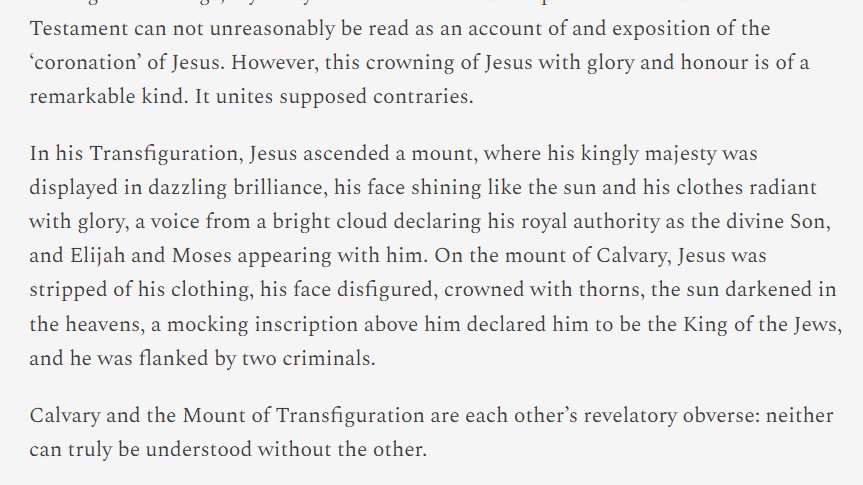
How to get URL link on X (Twitter) App


https://twitter.com/pegobry_en/status/1942632122193437081What did it mean for Israel to be strangers in Egypt? They were refugees on account of the famine, going down to the land of Goshen with seventy people. Most likely, they also had at least a couple of thousand others (Abram had 318 trained fighters born in his house).
https://twitter.com/joe_rigney/status/1892093763734151618I've made many of the same points as Joe has made about the problems that result when empathy is treated as the north star of our ethics, our society, and our policy-making, but without anything like the same reaction. It is quite possible to do!

 As many commentators have noted, there are many allusions to 1 Samuel in Luke and Acts. The books of Samuel are about the dawn of the Davidic dynasty and, fittingly, in books about the long-awaited arrival of David's greater Son, Luke and Acts frequently play off that background.
As many commentators have noted, there are many allusions to 1 Samuel in Luke and Acts. The books of Samuel are about the dawn of the Davidic dynasty and, fittingly, in books about the long-awaited arrival of David's greater Son, Luke and Acts frequently play off that background.
https://twitter.com/Loyal2tGo17/status/1869809019617194485First, the text closely parallels Amnon's rape of Tamar with David's sin a couple of chapters earlier, alerting the hearer to the similarities between the two. David's heir was following in his father's footsteps.

https://twitter.com/NeilShenvi/status/1869135020134379719First, the closest analogies to David's actions are probably seen in figures like Pharaoh (Genesis 12), the Abimelechs (Genesis 20, 26), or Shechem (Genesis 34). He is a powerful king who can take a women when it pleases him, the lives of any obstructing his desire being at risk.
https://twitter.com/aaron_renn/status/1846569960505557214First off, although I can understand it, I've never felt the appeal of climbing status hierarchies as a root metaphor for my life goal and it is quite foreign to the way I've come to think about myself; in several respects I find it very unhelpful and narrowing, even dangerous.
https://twitter.com/zugzwanged/status/1800266695954584044While authorities are engaged in surveillance upon us, we are now also constantly engaged in surveillance upon each other. Online we speak knowing that parties unknown to us will be eavesdropping. Words can no longer be so easily tailored to hearer and context.

https://twitter.com/KatinOxford/status/1750897982218649955C.S. Lewis's work has wide appeal—Christians & non-Christians, children & adults, men & women, scholars & laypeople, Protestants & Catholics, conservatives & liberals, etc. Of course, many dislike him—or aspects of him—and his appeal varies, yet it is still noteworthy.
https://twitter.com/DZRishmawy/status/1727027562529104374In 2 Kings 4, the Shunammite is given a miraculous child of promise. She stands in the doorway (verse 15; cf. Genesis 18:10) and the Lord's messenger declares that she will have a son that time next year using the same expression as in Genesis 18:10 (2 Kings 4:16-17).
https://twitter.com/ewzucker/status/17253801626093488251 Kings 19 had several surprising possible allusions to the binding of Ishmael. Not where we might expect to find them!
https://twitter.com/Louise_m_perry/status/1719387773617021362In such a group, most people are fearful of the anger, abuse, or aggression of one party and just want to keep the peace. That typically boils down to appeasing the abuser and policing any who would aggravate them by resisting or calling them out.
https://twitter.com/PLeithart/status/1702672111834419676Understanding what such statements mean really requires some conversance with symbolism, archetypes, and typology and how they work. It also requires minds that don't operate on hair-trigger impressions, but which can patiently think something through and ask genuine questions.
https://twitter.com/EdwardLHamilton/status/1680255816631189505I am not an 'elite' or even an aspiring one. My work is that of a popularizing scholar.